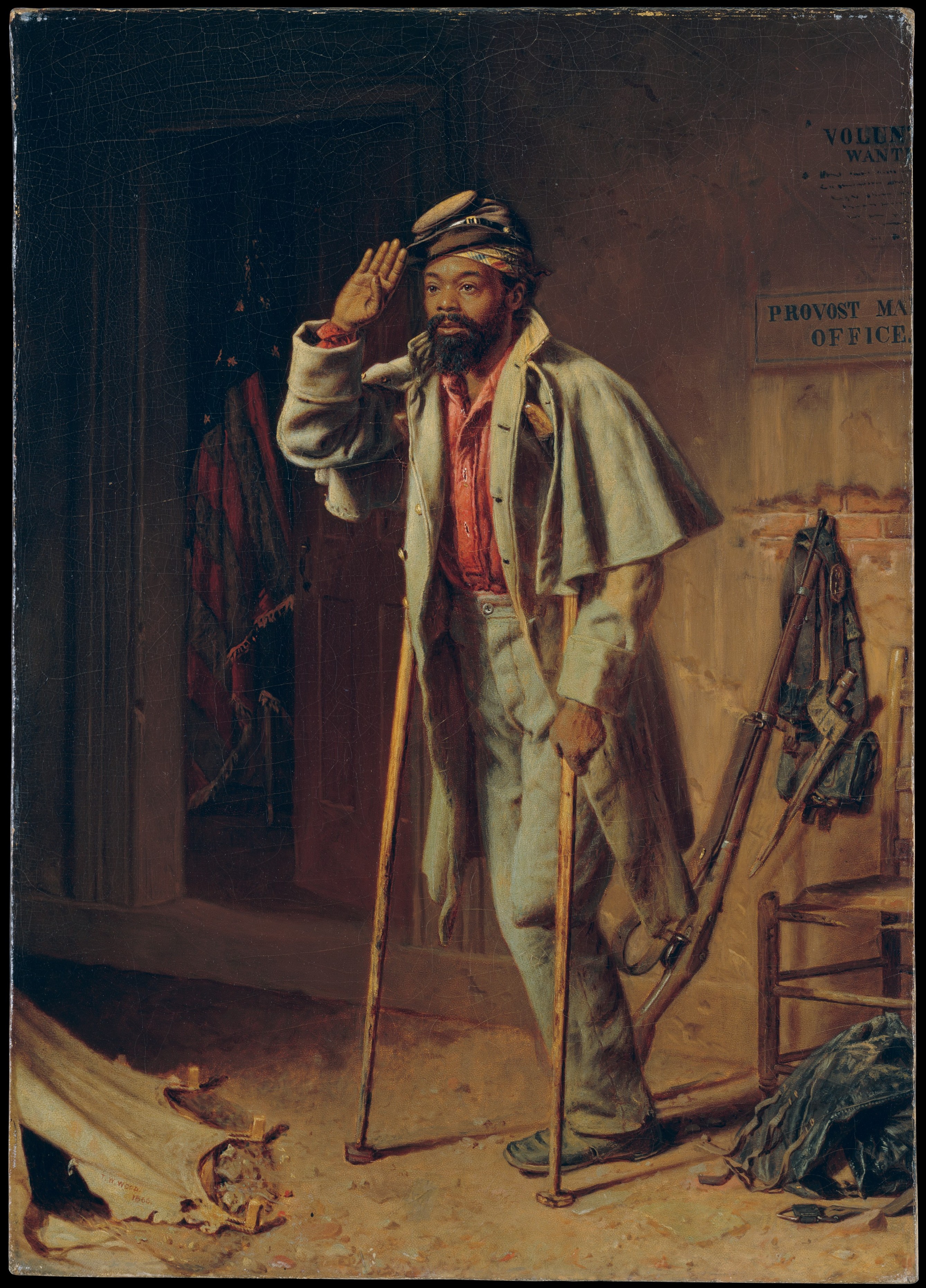
In this multi-day elementary-level civics lesson written by Eileen Gloster, students view images and consider stories of people whose lives may not have been adequately valued by their contemporaries. Students examine documents, do further research, and come to their own conclusions about how those individuals could have been and should be valued, and possibly assisted. Students then work alone, in small groups or pairs to create a song, diary entry, or podcast that examines and answers at least one compelling and one supporting question.
This lesson prompts inquiry with paintings and photographs of U.S. Civil war veterans who were African-American and were left with war-related disabilities affecting their ability to work. Inquiry about work and value extends to the fact that enslaved people were forced to work without pay, and question of whether value is defined only by work. Learning objectives for the lesson include the understanding that:
- By providing that help for people who need it, we make it possible for people to succeed, thus helping that person and the society as a whole.
- In the course of American history we have at times helped people, such as disabled veterans, but at other times, particularly if many people thought helping others would hurt the helpers too much, we have turned our backs on people in need.
- That by asking questions, citizens are in a better position to figure out what is fair and how to act.
The lesson's compelling questions, objectives, methods and activities can be applied to other sources showing people with a disability and/or others who may be undervalued.
This lesson meets several social studies standards for the elementary grades in Massachusetts, including
- Grade 2: Topic 2. Evaluate the qualities of a good citizen or member of the community, drawing on examples from history, literature, informational texts, news reports, and personal experiences.
- Grade 2: Topic 5. Explain that people are a resource too, and that the knowledge and skills they gain through school, college, and work make possible innovations and technological advancements...Explain what it means to be employed.
Download:


